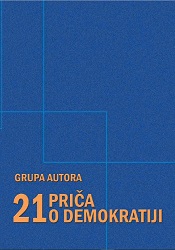Načelo javnosti kao atribut pravičnosti
Publicity principle as an attribute of justice
Author(s): Zoran Pažin
Subject(s): Political Theory, Politics and law, Politics and society, Sociology of Law
Published by: Centar za građansko obrazovanje (CGO)
Keywords: democracy; justice; attributes; publicity principle;
Summary/Abstract: Information is an outcome of human cognition, and hereby an outcome of progress, economic, cultural and moral prosperity of the society. However, prosperous society can be only politically stable society in which mutual rights and obligations of citizens and state are definite. Thus, the role of the Court, in the society that is politically organised by the system of division of authority on legislative, executive and judicial power (Montesquieu – L`ésprit de lois) is to resolve conflict situations in the society, and court verdict- verification of legal order, in an authoritative way. Contribution judges can give to the rule of law is immeasurable. Therefore a judge must be a person of public thrust, since „going to the judge means going to justice“, a central virtue of the society which pleads to be open, civic and democratic. Publicity principle is an integral part of wider international standard, of capital significance for the affirmation of rule of law- right to a fair and public trial, in reasonable time limit, in front of independent and impartial court, established by the law. Previous statement, clearly, implies the conclusion-publicity is an attribute of justice. On the other hand, freedom of information is an attribute of freedom of expression, or free public dialogue about all issues being of public interest, and in the concrete case- about circumstances related to the work of courts. Since only a citizen who has access to information, being an original protagonist of sovereignty, can express his opinion. Mistakes made during reporting on work of courts are ample and diverse. Fundamental disregard of place and role a court has in society, especially in relation to the police, prosecutor’s organisation and advocacy, leads to major mistakes in terminology that is being used. Domestic normative framework which regulates the correlation between those two categories of human rights and freedoms, that are in focus of author’s interest in this text, is given in Charter on human and minority rights and civic freedoms, representing an integral part of the Constitutional charter of the State Union of Serbia and Montenegro, Constitution of the Republic of Montenegro, Criminal procedure code, Law on litigation, Law on media and Court standing orders. It should be emphasized, that according to Article 10 and Article 16 of the Constitutional charter of the State Union of Serbia and Montenegro, ratified and published international agreements on human and minority rights and civic freedoms, make an integral part of domestic legal system, thus, nota bene, have more important status than domestic regulations and are applied directly. Freedom is illusory and theoretical, instead of being efficient and real, if the citizens do not have free access to information that are on disposal to public bodies. Only cognition opens new horizons in attaining the self-conscious freedom.
Book: 21 priča o demokratiji
- Page Range: 63-74
- Page Count: 12
- Publication Year: 2005
- Language: Montenegrine
- Content File-PDF

